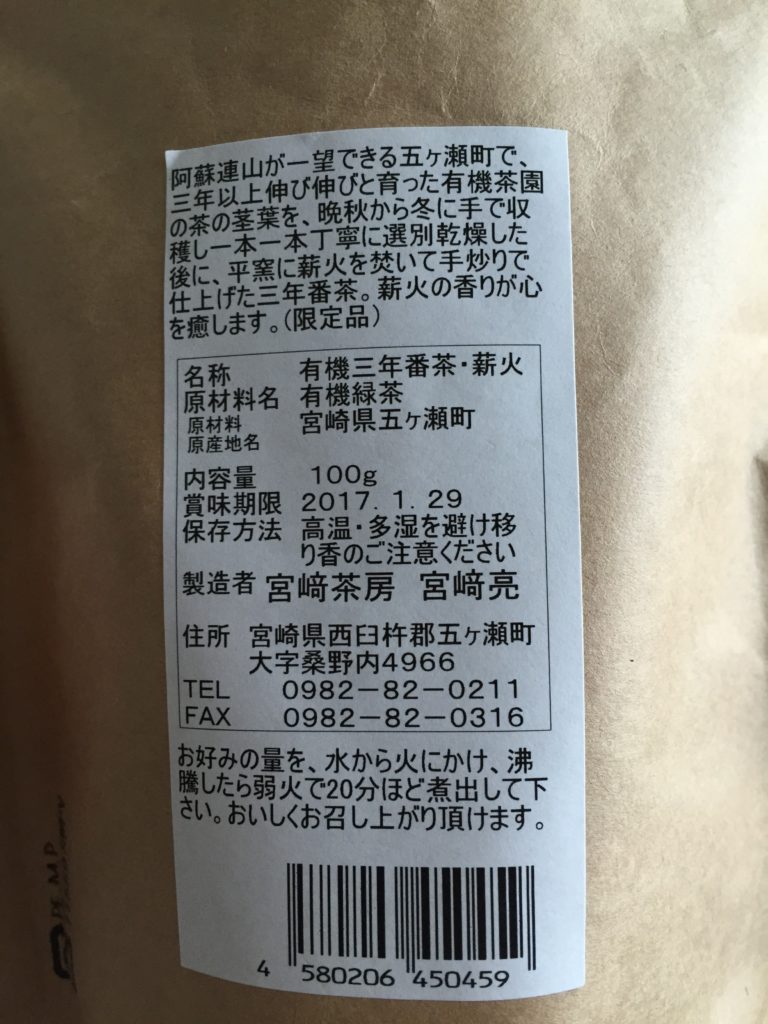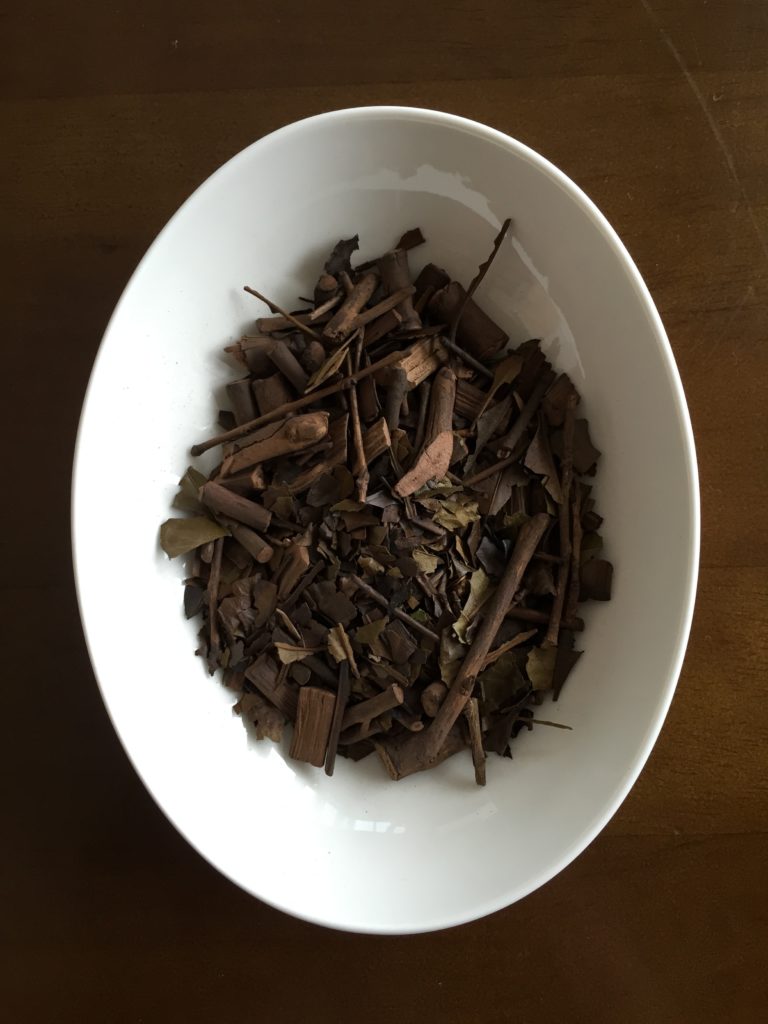If you think this is just a pile of sticks, you’re not wrong. It is, mostly, just a pile of sticks, with a few really broken leaves. It is, however, a bancha.
Specifically, it’s called the three year bancha. I’ve seen bancha before, but most of them just look like lower grade green tea. This is quite something else. This is one of the many teas I got from the tea fair I attended in Kyoto. I’ve been slowly going through them one by one, and some are definitely more interesting than others. It seems as though Yuuki-cha used to sell this tea.
This particular one is from a farm not in the normal tea producing regions of Shizuoka or Kagoshima, where most Japanese green teas are grown these days, but in Miyazaki, next to Kagoshima on the southern side of Kyushu. The farm does a bunch of interesting things – growing black tea, a pan fried (as opposed to steamed) green tea, and this. The farm is located in a mountainous area, and as they tell you, looking up to Mount Aso, an occasionally active volcano in the middle of Kyushu.
The instructions on the back of the package says you should add the desired amount of the tea into a kettle, and boil and then turn to low heat for 20 minutes. Then you can drink as you please. What you get then is not so much tea in the normal sense of the word, where we brew leaves, but rather a bit of a soup using the sticks from the tea plant that’s been cut down and then roasted.
The package opens with obvious charcoal smell, and the tea itself is not very strong and quite mild. It’s the sort of thing you might just sip all day, and in this way not too different from cheap roasted oolongs in purpose, except in this case it’s even milder and softer, without much of the bitterness or sourness that can sometimes accompany roasted oolongs.
If you ignore the instructions and just brew this, what you’d get is just a cup full of roast and not much else – did I say it’s mild? What is funny to me is that this tea is still classified as “green tea,” even though it’s about as far from green tea as you can get while still calling it that. When we say Japanese green tea, I’m pretty sure nobody’s thinking of this.


 RSS - Posts
RSS - Posts
I took you at your suggestion and have been reading some of your old post-Covid posts. I haven’t been to…